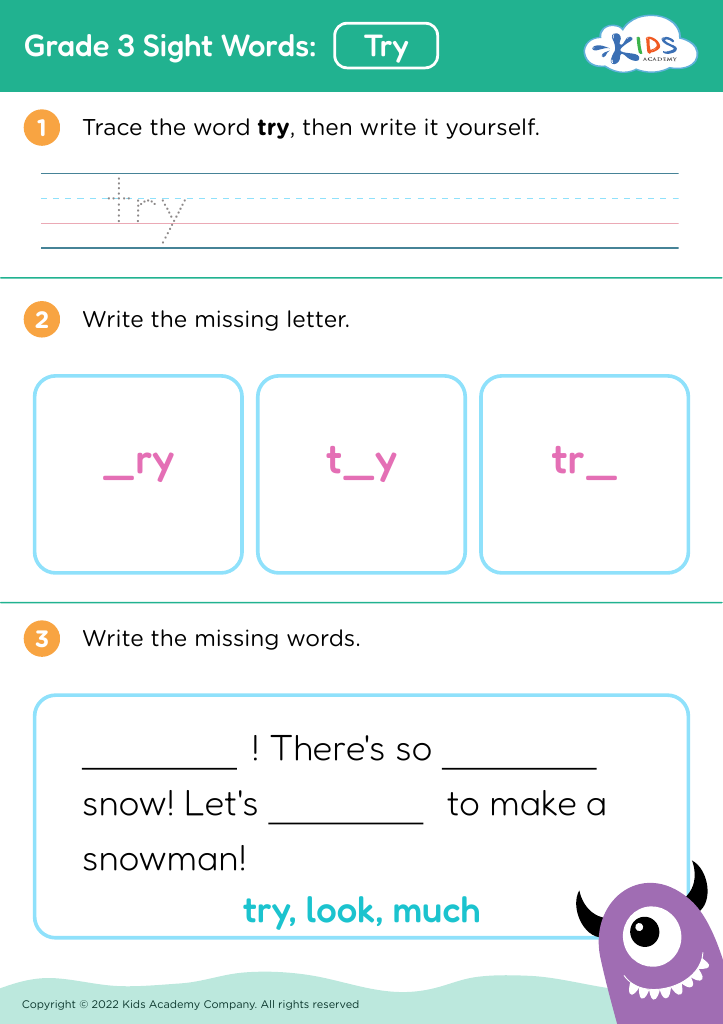Number identification Building Vocabulary Worksheets for Ages 7-8
3 filtered results
-
From - To
Enhance your child's learning experience with our “Number Identification Building Vocabulary Worksheets” tailored for ages 7-8. Designed to build essential math skills, these worksheets focus on number recognition and vocabulary development through engaging, age-appropriate activities. Little learners will practice counting and number identification, while also expanding their language skills. Each worksheet promotes critical thinking and reinforces understanding of numbers through fun exercises. Ideal for home or classroom use, these resources support diverse learning styles and are perfect for reinforcing foundational math concepts. Download our worksheets today to help your child become more confident and fluent in their number skills!
Number identification and vocabulary building are essential skills for children aged 7-8, making it crucial for parents and teachers to prioritize these areas. At this age, children are developing foundational skills in math and language that will support their academic success throughout their schooling.
Number identification helps children understand basic math concepts like addition and subtraction, which are fundamental for more advanced skills later on. Recognizing numbers lays the groundwork for skills like counting, comparing, and understanding quantities. This understanding promotes confidence in math-related tasks and fosters a positive attitude towards learning.
Equally important is vocabulary building, which enhances children’s reading comprehension and communication skills. An enriched vocabulary enables them to express their thoughts clearly and engage effectively in conversations. When children can identify and understand different words, they are better equipped to comprehend complex texts and participate in discussions, which critically support their overall academic performance.
Moreover, fostering these skills collectively nurtures critical thinking and problem-solving abilities. By prioritizing number identification and vocabulary, parents and teachers can create a strong foundation that promotes literacy and numeracy, setting the stage for lifelong learning and success. Encouraging growth in these areas will celebrate each child’s potential and propel them towards academic achievement.



















.jpg)














